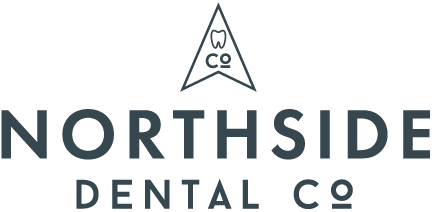Dental treatment for seniors is crucial, especially because elderly dental problems are more common than you think. According to the CDC, nearly two-thirds of people over the age of 65 have some level of gum disease, and one-fifth have lost all of their teeth, requiring complete dentures.
While dental problems are more common in seniors, they’re not inevitable. The right geriatric dental treatment can help keep your mouth healthy well into your golden years.
When it comes to dental care for seniors, the usual advice still applies: Brush and floss regularly, eat a balanced diet, and avoid food and drinks that can damage your tooth enamel.
But dental care for elderly patients involves a few other recommendations, too. So before we dive into recommended treatments, let’s first explore some common elderly dental problems.
Common Elderly Dental Problems Requiring Geriatric Dental Treatment
If you’re an adult searching for a “dentist for senior citizens near me,” you may be experiencing one of these oral health issues.
Gum Disease and Tooth Loss
One of the most common elderly dental problems is gum disease. Gum disease usually begins with gingivitis, or gum inflammation, and can advance to periodontitis if not treated. Gum disease can lead to tooth loss, gum recession, pain, and discomfort.
Root Decay Due to Gum Recession
Seniors often experience root decay, too. Root decay happens when the gums recede and expose the tooth’s root. As a result, the root isn’t as protected as the enamel and is much more susceptible to decay.
Darkened Teeth Caused By Changes In Enamel Tissue
Your tooth enamel gets thinner as you age, causing your teeth to become more transparent. Due to this transparency, the darker layer beneath the enamel shows through, giving your teeth a yellow or brown tint. Maintaining good mouth care for elderly teeth, watching the foods and beverages you consume, and regular dental cleanings can help prevent staining. Additionally, seniors can easily whiten their teeth with professional treatments.
Inflamed Tissue Under Dentures
If you wear dentures, you could be at risk for developing inflamed tissue under your dental appliance. Food particles and bacteria can get trapped, causing irritation, bad breath, and even infections.
These potential issues make finding the right oral care for elderly people even more important!
Tips About Dental Care For Elderly People
The previous dental problems might sound daunting, but there’s a lot you can do to make sure your mouth stays healthy. Here are a few oral health tips for seniors.
1. Always Brush And Floss Regularly
Brushing your teeth and flossing are two cardinal rules of dental care, no matter your age! Brush at least twice a day and floss daily.
2. Eat A Balanced Diet
A healthy diet is important at any age and is good for your teeth, too. Eating high-fiber foods can help reduce plaque buildup, and calcium-rich foods can help keep your teeth strong.
3. Avoid Sugary And Acidic Foods And Drinks
Sugar and acid can damage tooth enamel, so limit your consumption. If you consume sugary or acidic foods and drinks, brush your teeth afterward to help remove harmful substances.
4. Quit Smoking
Smoking is bad for dental health at any age because it can increase the risk of severe gum disease and tooth loss. But it’s especially harmful to seniors. If you smoke, quitting is the best thing you can do for your dental health.
5. See Your Dentist Regularly
Regular dental checkups and routine cleanings are essential for seniors because your dentist can identify potential problems early.
Now that you know some tips about dental care for elderly people, you’re on your way to keeping your mouth healthy as you age. But what should you expect when it’s time to visit a dentist for elderly people? First, let’s see what dental services for the elderly might look like.
Main Types of Geriatric Dental Treatments
During your routine dental visits, your dentist will evaluate your oral health and recommend any of the following dental services for the elderly.
1. Routine Cleanings
The most common senior citizen dental care recommendation is routine cleaning, which involves removing plaque and tartar buildup from your teeth. The ADA recommends getting routine cleanings twice a year. Don’t skip your cleanings as you age! They can help keep your mouth healthy and prevent problems down the road.
2. Deep Cleanings
A dentist for elderly patients might recommend a deep cleaning if you have gum disease or the beginnings of tartar buildup below your gum line.
3. Debridement
If dentists for seniors struggle to complete your exam due to the level of plaque and tartar buildup present, they will likely recommend a debridement treatment.
4. Periodontal Cleaning
Following a deep cleaning, a dentist for the elderly will schedule a periodontal cleaning to help maintain gum health.
5. Denture Care
Many elderly adults need dentures. Dentists for seniors will typically recommend an annual denture care visit to ensure proper fit, comfortability, and oral health.
6. Oral Cancer Screenings
Regular oral cancer screenings are often part of routine dental treatments for seniors. Unfortunately, oral cancer is more common in older adults. Your dentist will look for signs of oral cancer during your biannual cleanings, which is another reason not to skip them!
Get The Best Dental Treatment For Seniors At Northside Dental Co.
Dental care for elderly adults should be a top priority as you age. Keeping up with routine dental treatments for seniors can help prevent dental problems and even detect serious health issues like oral cancer.
Look no further if you’re searching for a dentist for senior citizens near me in Richmond, VA! At Northside Dental Co., we offer reliable and affordable dental care for seniors across Richmond and the surrounding areas. Our skilled dentists are experienced in dental services for the elderly, and we offer various treatments to meet your needs.
Contact us today or schedule an appointment.

